Opinion
Assessing Lawan’s unrivaled accomplishments in two years
Published
3 years agoon
By
News Editor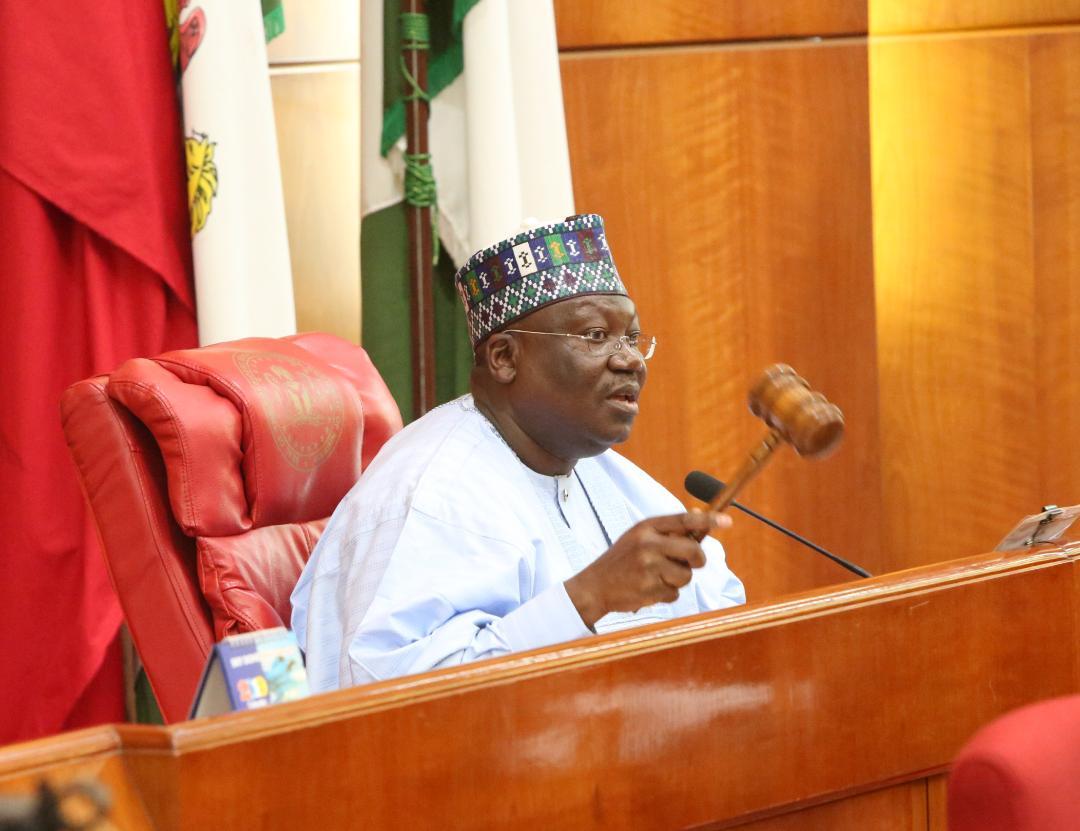
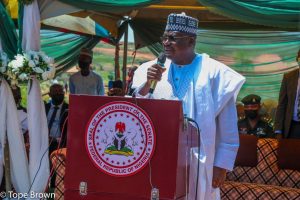
By Ezrel TABIOWO
Whilst going through the news feed of my social platforms on Friday evening, an analysis written by a Senate Correspondent of an online platform, Premium Times, on the performance of the Ninth Senate under the leadership of Senator Ahmad Lawan caught my attention.
It reads: “In two years, Lawan’s Senate records more failures than successes”. Though I felt a sense of outright disagreement with the caption of the report which I perceived as strongly biased, I nevertheless decided to read its contents for very obvious reasons.
1. To determine the rationale behind the writer’s position;
2. To examine the strength of arguments in reaching what I perceived to be a rather misleading conclusion;
3. To establish and understand the parameters used in coming to such erroneous judgement; and
4. To understand the reporter’s level of competency and professionalism
As one who has covered the proceedings of the upper chamber in the last 10 years under the strict supervision of very meticulous line Editors, I learnt to avoid falling for the temptation to skew analysis in my weekly column to only reflect my personal thoughts or opinion on a matter devoid of supporting facts.
In other words, my credo as a Reporter at the time was to live up to the ethos of what Helen Sissons considers “Good Journalism” in the book titled ‘Practical Journalism: How to Write News’.
For Sissons, “Good Journalism requires accurate writing”, as carelessly written reports can mislead the audience. With respect to the analysis by the Premium Times reporter, it brings to mind what then ought to constitute Good Journalism? In response, I would say, the provision of accurate facts.
Now, let us examine the parameters used and facts provided by the reporter in reaching such misleading position. In essence, what were the highlighted facts suggestive of the purported failure of parliament within the context of the analysis? For the purpose of clarity, I advise that due attention be given to parenthetical observations in the following paragraph.
The reporter gave them as follows: Approval of Executive Loan Requests; Checking Excesses of Executive Appointees and Colleagues (not recounting the Senate’s summons on the Health Minister during the COVID-19 pandemic last year, the Former Service Chiefs and IGP over lingering insecurity and many others); Holidays and Lateness (again, not disclosing the number of times the Senate bent its rules to sit beyond 2pm and most times till 4pm or the circumstances of the pandemic which compelled the upper chamber to adjust plenary sessions from three to two sitting days in a week); Budget Padding (in this instance not taking into consideration that the National Assembly has the legislative and constitutional powers to review executive requests in this regard); and Checks and Balances (which by the way makes no reference to, or recourse to the efforts of the Legislative Compliance Committee of the Senate).
What I find even ludicrous on the other hand is that these purported failures were made to tower above the outstanding legislative accomplishments of the Lawan-led Senate in a way intended to undermine the achievements of the Ninth Assembly.
Much as journalists are expected to hold government accountable as the fourth estate of the realm, such responsibility must not be seen to trample on objectivity, foster bias, or suppress truth.
This takes us to the bigger question, what then is the objective approach to assessing the performance of the ninth Senate in the last two years?
My response: an objective approach that juxtaposes the Senate’s accomplishments side-by-side with its legislative agenda to measure whether or not the upper chamber has indeed lived up to expectations. Only a newbie or rookie to parliamentary reporting would attempt to do otherwise.
How to assess the mid-term performance of the Ninth Senate
When Senator Ahmad Lawan threw his hat in the ring to contest the Senate Presidency a second time in 2019, he very much went for it fully prepared with a robust legislative agenda.
Tagged: “A National Assembly that Works For Nigeria”, Lawan’s clearly defined agenda remains the first ever seen from any candidate contesting the Senate Presidency since Nigeria’s return to democratic rule in 1999.
He also was the first candidate ever in Nigeria’s history to take his campaign round media houses across the country in a bid to sell his Senate Presidency and as well seek the support of the media as partners in having a National Assembly that works for all Nigerians.
His legislative agenda targeted the following key areas: Security, Economy, Criminal Legislation Reform, Public Finance Management Legislations, Youth Unemployment and Substance Abuse, Standard of Education, Healthcare Services, Social Safety Net, and Constitutional Amendments.
Other aspects include: Independence of the Legislature, Electoral Reforms, and Reviving the Real Sector and Infrastructure.
While delivering his 2nd Anniversary speech during a special session last week, the Senate President announced that the upper chamber in the last two years passed 58 bills out of 742 bills introduced.
Surprisingly, some analysts like the Premium Times reporter jumped at it and fell for the nonsensical and shallow approach which adjudges the success of Parliament by the number of bills passed as against those introduced over a specified period of time.
They however fail to realize that the actual success of parliament is measured not by the number of bills passed as against the number introduced, but by their numbers spread across the legislative agenda in meeting with the expectations of citizens.
The 58 bills passed in the period of two years by the Senate addresses and touches on critical aspects of the economy, security, public finance, employment, education, healthcare and so on.
Education
On the 7th of July 2020, the Senate passed a landmark legislation which criminalized sexual harassment in Nigeria’s tertiary institutions.
With the passage of the Sexual Harassment bill, the Nigerian government would be fulfilling part of its obligations undertaken through the ratification of the United States Convention on the Elimination of All Forms of Discrimination Against Women (CEDAW), the African Charter on Human and Peoples Rights, the Protocol to the African Charter on the Rights of Women in Africa, and the African Charter on the Rights and Welfare of the Child.
The upper chamber during the last two years also passed bills to upgrade some polytechnics across the country such as the Yaba College of Technology and Federal Polytechnic, Ilaro, into full-fledged Federal Universities.
This is not to mention the passage of bills to establish new tertiary institutions across the six geo-political zones of the country as well as put an end to discrimination between First Degree and HND holders by employers.
Healthcare Services
In its bid to improve healthcare services across the country, the upper chamber considered several bills and passed some seeking to upgrade Federal Medical Centres to University Teaching Hospitals.
Among such bills is one passed on June 1, 2021, seeking to establish the Modibbi Adana University Teaching Hospital, Yola in Adamawa state.
The Senate also on May 19, 2021, passed a bill for an Act to provide the legal framework to establish Federal Medical Centres in the country, as well as equip and maintain them to provide facilities for diagnosis, rehabilitation and treatment in medicine.
The upper chamber also approved the establishment of the National Dermatology Hospital, Garkida, Adamawa, State.
The bill seeks to revive an international hospital that would specifically focus on the treatment of leprosy, skin cancer and other skin-related diseases.
In addition, the Senate on Wednesday, February 17, 2021, passed for second reading the Public Health Emergency Bill, 2021, and referred same to its Committee on Primary Health and Communicable Diseases for further legislative work.
The bill seeks to repeal the obsolete Quarantine Act 1926 and provide an effective and efficient legal and administrative framework to address challenges from a sudden outbreak of infectious diseases.
It also seeks to facilitate the provision of funds and accountability mechanisms to contain the spread of dangerous infectious diseases, as well as prescribe offences and punishments for violations associated with the control and management of such diseases.
Economy
The ninth Senate in contrast to past assemblies since 1999, passed the most impactful legislations targeted at strengthening the Nigerian economy.
It recorded a significant feat with the restoration of the nation’s budget cycle to the January – December timeline which before now was an unbreakable jinx.
The restoration of the budget cycle by then ninth assembly saved Nigeria from an economic recession during the first quarter of this year.
The move is expected to turn around the fortunes of the country’s fiscal plans and boost local and foreign investors’ confidence in Nigeria’s economy.
In a similar attempt, the upper chamber also passed the Deep Offshore and Inland Basin Production Sharing Contract Act (Amendment) Bill 2019 which defied all attempts by previous assemblies to amend since is enactment.
The bill which has since received presidential assent pushes Nigeria’s revenue figure accruing from International Oil Companies (IOCs) operating in the country from $150 million (USD) to $1.5 billion (USD) annually.
Also passed was the Finance Bill 2020 which, specifically, amended 17 key aspects of the extant laws.
They are: Capital Gains Act; Companies Income Tax Act; Industrial Development (Income Tax Relief) Act; Personal Income Tax Act; Tertiary Trust Fund Act; Customs and Excise Duties Tariff; Value Added Tax Act; Stamp Duties Act; and Electronic Transaction Levy.
Other areas amended include: Federal Inland Revenue Service (Establishment) Act; Nigeria Export Processing Zone Authority Act; Oil and Gas Export Processing Zone Act; Crisis Intervention Fund; Unclaimed Funds Trust Fund; Companies and Allied Matters Act, 2020; Fiscal Responsibility Act; and Public Procurement Act.
President Muhammadu Buhari, had in a letter dated 25th November, 2020 said the passage of the Finance Bill would support the implementation of the 2021 budget through key reforms in taxation, customs, excise, fiscal and other laws.
Given these achievements, I daresay that the Senate President reserves the right to constantly remind Nigerians about his milestone accomplishments which before now were unrealisable under previous assemblies since 1999.
Youth Unemployment
Disturbed by the growing number of unemployed youths in Nigeria, the Senate President in his legislative agenda identified this as a challenge and has remained focused in ensuring its reversal through legislative support to executive requests.
Drawing from the cordial relations between the Executive and National Assembly, the exit strategy identified by the Buhari-led Federal Government to address youth unemployment targets the provision of critical infrastructures that would create jobs for the thousands of young Nigerian graduates churned out by universities across the country.
However, getting the support of the National Assembly would require its approval for loan requests from the Executive to finance the implementation of such critical infrastructures and projects.
In one of such moves last month, President Buhari while seeking the upper chamber’s approval of donor fund projects under 2018-2020 borrowing plan in a letter addressed to the Senate President, Ahmad Lawan, dated 6th May, 2020, explained that same would enable projects listed to be financed through sovereign loans from the World Bank, African Development Bank (AfDB), French Development Agency (AFD), Islamic Development Bank, China EXIMBank, China Development Bank, European Investment Bank, European ECA, KfW, lPEX, AFC, India EximBank and International Fund for Agricultural Development (IFAD).
He added that the projects are geared towards the realization of the Nigerian Economic Sustainability Plan that cut across key sectors such as Infrastructure, Health, Agriculture and Food Security, Energy, Education and Human Capital Development and COVID 19 Response efforts in the six geo-political zones of the country.
There are yet other numerous achievements or issues addressed by the Ninth Senate in just two years which the Premium Times reporter either inadvertently forgot or mischievously left out in her write-up probably to justify her biased conclusion.
Ezrel TABIOWO is the Special Assistant (Press) to the Senate President.
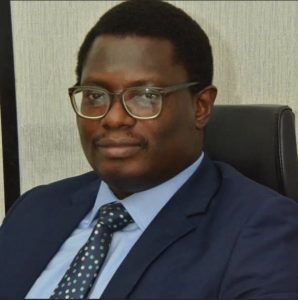 Ezrel TABIOWO, FIMC, CMC, Fsca
Ezrel TABIOWO, FIMC, CMC, Fsca
You may like
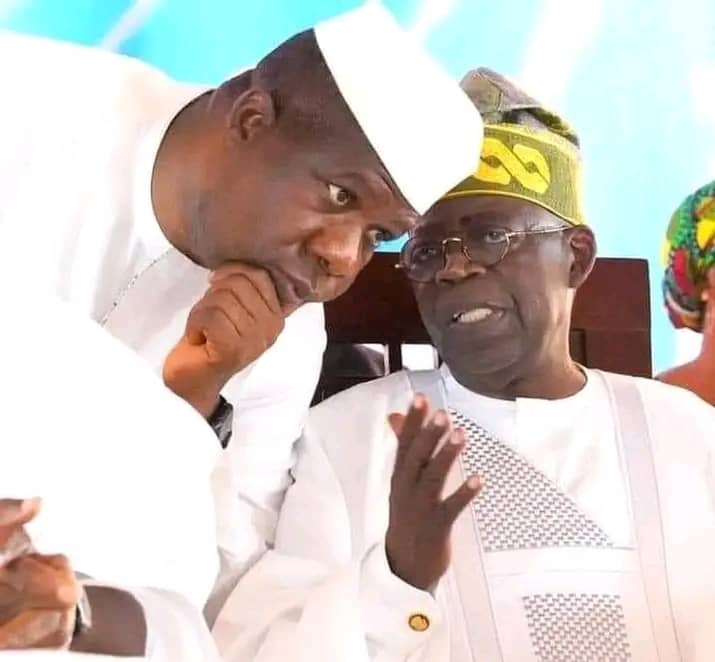
By Senator Opeyemi Bamidele, CON
Today, I celebrate a timeless doyen of democracy and an astute mentor of many leaders, President Bola Ahmed Tinubu, GCFR. By global standards, Asiwaju is truly a man of the people and the visionary of our times, who devoted his life to pursuing the greatest goods to the greatest number of people. This has been the core of his heart and life from when he was a boardroom guru in the 1980s to when he joined partisan politics in the 1990s.
Born on March 29, 1952, Asiwaju’s foray into politics in 1991 was never a mistake, though it came with a huge sacrifice that cost dearly. As a Senator of the Federal Republic of Nigeria, I celebrate how Asiwaju firmly stood with the people rather than dining with the military oligarchy that annulled the outcome of the June 12, 1993 presidential election ostensibly won by Chief M.K.O Abiola (now of blessed memory), an annulment that set our fatherland back to the pre-colonial era.
I also celebrate how Asiwaju teamed up with the progressives to establish the National Democratic Coalition, a movement of likeminds and progressives that fiercely challenged the regime of the late tyrant, General Sani Abacha; mobilised support for the restoration of democracy to our fatherland and campaigned for the recognition of Chief M.K.O Abiola as the winner of the June 12 presidential election. And this conviction and pursuit eventually earned him exile from the land of his birth. Yet, he was undaunted in his quest to see his fatherland liberated from the era of locusts that pitched us against the comity of nations.
I celebrate how Asiwaju returned to Nigeria in 1998 when the darkest era of the late tyrant finally folded into the abyss of extinction after fighting doggedly on the side of the people. The end of the dark era culminated in his election as the third civilian governor of Lagos State in January 1999. Though faced with diverse heinous challenges at the inception, Asiwaju came out strong and victorious, setting Lagos on the path of irreversible progress, reforming the coastal state to a globally competitive smart city and turning it to a constant destination of strategic investment. And the world can no more look away from Nigeria just because of the pro-people reforms he carried out in Lagos.
Asiwaju’s quest for the greatest goods for the greatest number of people pushed him to national politics, the kind of venture that consumed the nationalists and patriots who lived before him. At different times, he challenged the traditional forces that held our fatherland down. He first fought for the soul of our fatherland on the platform of the defunct Action Congress, and it did not entirely produce an enviable outcome. He later switched to the Action Congress of Nigeria, and banished the regressive elements from the six states of the South-west. Full of hope, Asiwaju stressed forth his hands across Benue and Niger, and together, they rescued Nigeria from the hands of the regressives.
At 72, as the President of Nigeria, Asiwaju has brought rare conviction and passion to the business of public governance, courageously daring the forces of regression and tirelessly pursuing the interests of over 227 million regardless of their faith, ideology and race. The task is truly daunting, but the victory is undoubted. Only within 10 months of Asiwaju’s ascendancy to the presidency, we have started witnessing the dawning of economic restoration and the ray of political renaissance under his watch.
As I nostalgically reflect on the journey so far, I remember his labour and toiling for our fatherland, even when most misunderstood. I remember his undying passion to lead the path to a greater nation, even when the future looks so bleak and always unsure. I remember his utter commitment to a movement of patriots and progressives eternally sworn to rescue our fatherland from the claws of the ageless vultures and the blood-thirst beaks of mindless hawks that always seek to feast on the flesh of Nigeria. Despite their ferocity, he eventually subdued the enemies of our souls, even right in the midst of inferno they set ablaze for us all.
That is the reality in our fatherland today. Asiwaju is at the forefront of that reality. And we are all witnesses to this history, even from its making to its maturation. Now, as he graciously turns 72 on this auspicious day, I cannot, but earnestly pray God grants him longer life and inner strength to steadily paddle the ship of our nation to the coast of endless ecstasy.
Heartiest 72nd Birthday, my leader and mentor.
- Bamidele, Leader of the 10th Senate, writes from Abuja
Opinion
Chronicling Deputy Senate President Barau’s 100 days of parliamentary excellence
Published
10 months agoon
September 18, 2023By
News Editor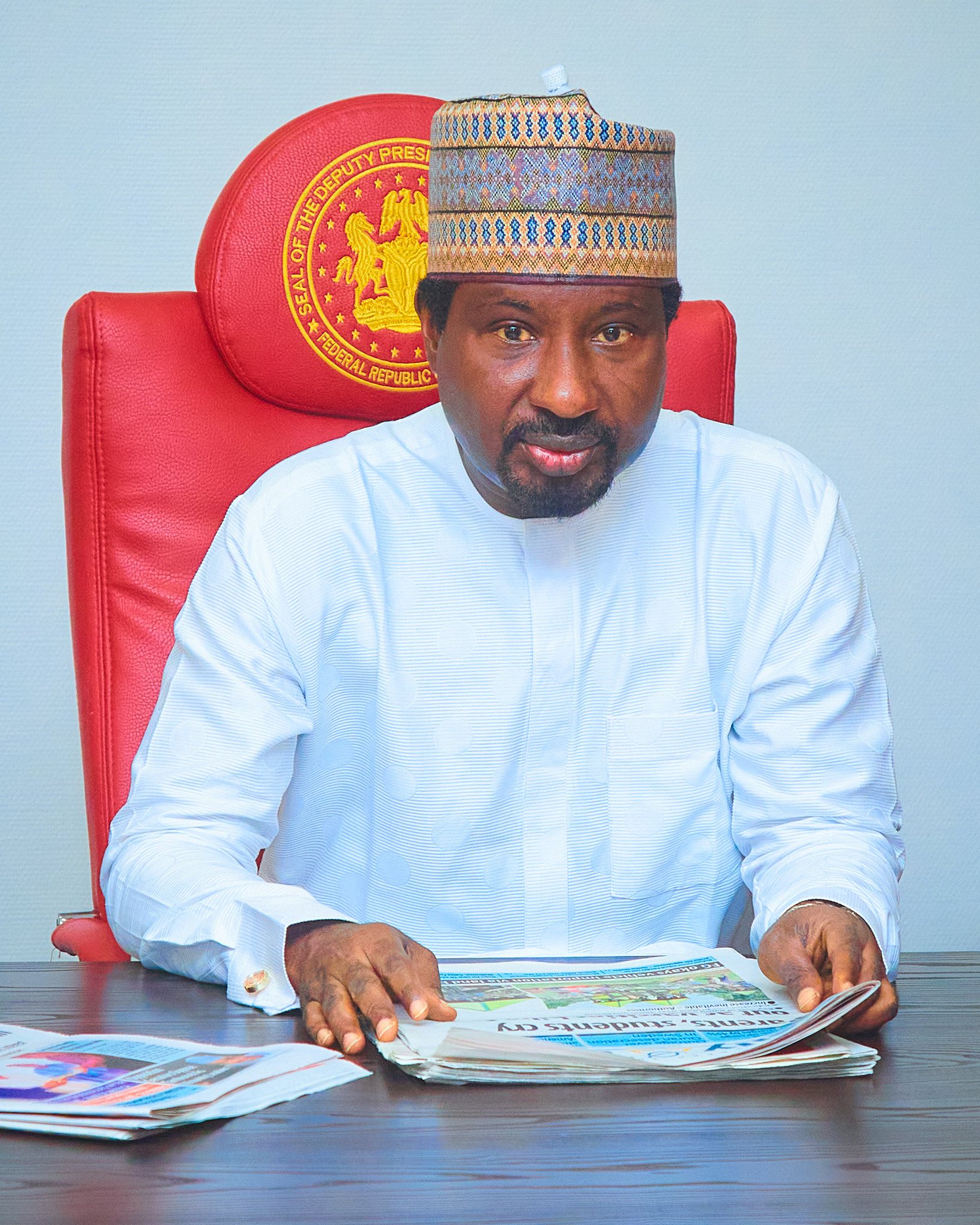
By Ismail Mudashir
Tomorrow, Wednesday, September 20, 2023, the 10th Senate will mark its first 100 days following its inauguration on June 13, this year.
The inauguration of the parliament followed President Bola Ahmed Tinubu’s proclamation, via a letter to the Clerk to the National Assembly, Sani Magaji Tambawal, in line with Section 64(3) of the 1999 Constitution.
The first duty of the senators was the election of the presiding officers – the President of the Senate and the Deputy Senate President. After a keen contest, Senator Godswill Akpabio, from Akwa Ibom State, emerged as the President of the Senate, defeating Senator Abdulaziz Yari, a former governor of Zamfara State.
Apparently, because of his rare personality traits, Senator Barau I. Jibrin, a fourth timer at the National Assembly (three times in the Senate – 2015 to date and once in the House of Representatives – 1999 -2003) emerged as the Deputy President of the Senate unopposed as all his colleagues threw their weight behind him.
Three weeks after the emergence of the two presiding officers, eight principal officers were named, thus the leadership of the 10th Senate was duly constituted. With the constitution of the leadership, the lawmakers got the parliamentary work started as urged by the President of the Senate, Senator Akpabio, in his speech on July 4, 2023, titled, “Let’s get the work started.”
On July 6, Senator Barau, for the first time, presided over the plenary session. During the session, five motions were moved including the one on Mallam Aminu Kano International Airport, Kano.
After the July 6 session which attracted applause from across the Red Chamber and beyond, Senator Barau had presided over the plenary on other occasions in the absence of the President of the Senate in the last 100 days.
Among the critical motions sponsored by the Deputy President of the Senate during the period under review was the one on the poor state of road infrastructure and the menace of gully erosion in the country. Also to his credit was a motion on the emergence of President Tinubu as the Chairman of the Economic Community of West African States (ECOWAS).
Four bills of the Deputy President of the Senate, including the one on the creation of a development commission to fast-track the development of the country, have been introduced at the Red Chamber.
* Balanced appointments
Recognizing the heterogeneous nature of the country, the Deputy Senate President selected his seven key appointees from across the country – four were drawn from Kano State – two from the southern part of the country – Oyo and Imo states, and one from Kwara State – North Central geopolitical zone.
The appointees who hail from Kano State include the Chief of Staff, Professor Muhammad Ibn Abdullahi; the Special Adviser (Policy & Monitoring), Professor Bashir Muhammad Fagge; the Special Adviser (Political), Yusuf Aliyu Tumfafi and the Special Assistant (Media & Publicity), Shitu Madaki Kunchi.
The Special Adviser (Media & Publicity), Ismail Mudashir, hails from Kwara State; the Special Adviser (Special Duties), Idris Abiola Ajimobi, Oyo State; and the Special Adviser (Administration), Mrs. Ngozi Ndawi Nkemdirim, from Imo State.
Commendations have followed what has been described by lawmakers, media practitioners, civil society organisations, and other stakeholders in the country as balanced appointments.
* Constituents driven representation
For Senator Barau, his representation has been constituents and pro-masses driven. Hence the unfettered access he grants to people from Kano North, Kano State, and beyond; the old, young, rich, and poor; APC members and members of other parties.
For instance, in August, he instituted a scholarship programme through which hundreds of tertiary institution students from Kano North Senatorial District were given N50,000 each. The programme was flagged off at Bayero University Kano (BUK).
Before the scholarship scheme, the Deputy President of the Senate had paid WAEC and NECO fees for hundreds of secondary school students.
To boost agriculture in the state, Senator Barau also distributed fertiliser to farmers across the 44 local government areas of the state.
According to beneficiaries, this initiative would enhance their output and contribute towards attaining food security in the state and country.
On September 6, the people of Rimindako community in Bagwai LGA of Kano State, through a human rights activist, Barrister Muhammad Zubair, lauded the Deputy President of the Senate over the construction of Yasanya bridge and access road in their community.
· Visits Abuja Industrial Park
On the invitation of the Zeberced Group, the Deputy President of the Senate was at the Abuja Industrial Park located in the Idu Industrial District on September 4. Sitting on 245 hectares of land, the park will house 200 factories, a helipad, a train station, a lorry park, a bank, a recycling station and a power plant, among others when completed.
The park is an initiative of the Zeberced Group, jointly founded by Adil Aydin Kurt and Cemal Kurt from Turkey. The company’s Managing Director, Aidl Aydin Kurt, conducted Senator Barau around the project. Kurt told his visitor that the project when completed will provide 40,000 direct jobs to Nigerians.
Moved by the 40,000 jobs to be created , Senator Barau said the parliament would provide the necessary legislative support to the company, saying the project was in line with the commitment of the federal government to address unemployment, boost and diversify the country’s economy.
* Keeping parliament alive during recess
Even with the annual recess embarked upon by the parliament on August 7, the office of the Deputy President of the Senate has been active, five days a week (Mondays – Fridays), with Senator Barau performing official engagements. During the period, he met with ministers, heads of agencies, civil society/pressure groups including the promoters of Tiga and Gari states, clerics, and party leaders, among others.
During their visit, stakeholders of the All Progressives Congress (APC) in Kano North Senatorial District, led by Hon. Sani Mukaddas, hailed Senator Barau, describing him as an exceptional lawmaker and leader.
In the same vein, a forum of former zonal women leaders of the APC has thumped up Senator Barau, saying he is not discriminatory in his dealings with all.
“Continue to support us, we won’t disappoint you, Insha Allah,’’ were the words of the Deputy President of the Senate to those who visited him. He also assured them of the commitment of the parliament to support the executive with the necessary legislation to address the challenges facing the nation.
Mudashir is the Special Adviser on Media and Publicity to the Deputy President of the Senate
Opinion
Ahmad Lawan: The Doyen of Nigerian Parliament @64
Published
2 years agoon
January 12, 2023By
News Editor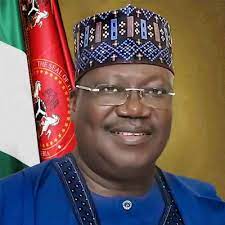
By Ola Awoniyi
Ahmad Ibrahim Lawan, the Distinguished Senator representing Yobe North Senatorial District of Yobe State, turns 64 on 12th January, 2023. Within those almost six and a half decades, he has seen it all, especially in public service. In just about five months from now, he will conclude his tenure as the 14th President of the Nigerian Senate and sixth consecutive session in the National Assembly.
Lawan has been around for so long in Abuja that it is easy to assume he was never elsewhere. Yet, his earliest work experience was in the academia, and it lasted long enough for him to bag a Doctorate degree in Remote Sensing and Geographic Information System (GIS) before yielding to the pull of partisan politics in 1998.
In that calling, Lawan has clearly made his mark. And not just because he attained the dizzying height of third in the order of succession. People see politics as a dirty game. But Ahmad Lawan does not see it that way. For him, politics should not change the core beliefs and principles of an individual. Service to the people should be the driving objective of partisan political practice. And whether in politics or elsewhere, Lawan believes one’s yes must mean yes.
This has, in no small measure, paid off for Lawan in his almost 25 years in politics, 24 of which has been as a federal lawmaker. A member of the pioneer class of the National Assembly of the Fourth Republic, he was first elected in 1999 to the House of Representatives from the Bade/Jakusko Federal Constituency of Yobe State. He was re-elected to the House in 2003. But in 2007, Lawan crossed over from the Green Chamber to the Red Chamber as the Senator for the Yobe North District. He was re-elected to that Senate seat in 2011, 2015 and 2019.
If you know what it takes to win elections in Nigeria, you would appreciate that what multiple winners like Lawan have accomplished is no small feat. His numerous reelections underscore that his constituents appreciate the quality of representation that he has been providing to them in Yobe North District.
The life of a politician is not all gloss as it may sometimes seem. Election is not a tea party. A parliamentarian in particular needs very hard work to get a return ticket from the party. In Parliament, getting the support of colleagues for motions and bills requires deep knowledge and passion for the subject; focus and temperament. It is actually an extra burden if you are a Presiding Officer in parliament. Success or failure at every stage has its implications.
No wonder, Mallam Nasir El Rufai, the outspoken Governor of Kaduna State, at a recent public function in Abuja, said he has no intention of seeking a seat in the National Assembly like many former governors now do.
Speaking as chairman at the second edition of the “Distinguished Parliamentarian Lecture” organised by the National Institute for Legislative and Democratic Studies(NILDS): the governor said:
“The Legislature is one branch of government I know I can never function. The hardwork needed to convince people to support even your motion is something some of us have no patience for. You know management in the Executive is very straightforward. It is very hierarchical and once you are a governor, your word is almost law. But in the Legislature, everybody is equal and there is no management that is more difficult than managing your equals. I don’t envy Mr Speaker and the Senate President at all because their job perhaps is the hardest job in this country. Managing equals is difficult.”
Despite the difficulties, Ahmad Ibrahim Lawan has shone at the National Assembly since its inauguration in 1999. Lawan is today one of only two lawmakers remaining in the National Assembly from the 1999 set. He has also attained the most enviable of heights in his many years of service at Parliament, becoming “first among equals” in the Upper Chamber, which is the very pinnacle of the hierarchy in the parliament of any democratic society. That makes him the Doyen of the Nigerian Parliament.
In his three and a half years as the 14th President of the Senate and Chairman of the ninth National Assembly, he has set a high standard for whoever will be his successors. He has demonstrated the value of parliamentary experience as a prerequisite for election as a presiding officer for the Upper Chamber.
His experience of more than two decades in parliament has made him an encyclopedia on the inner workings of the National Assembly. Lawan has the standing rules at the tip of his fingers. When any of his colleagues raises a Point of Order, he would ask the colleague to specify which order. But before the text is read out, Lawan already knows the provision and its applicability.
As “first among equals,” Lawan knows the importance of fairness in the conduct of the affairs in plenary. Even though the majority will always have its way, the minority must have its say as well.
Lawan knows the value of a bipartisan Legislature. Perhaps the most difficult aspect of the job of a Presiding Officer is to know when to hit the gavel and when not to. As one of Lawan’s aides, I heard him say, many at times, that he had no choice but to hit the gavel or rule in favour of a majority voice vote even when he held a different view to the voice vote. That is democracy.
Lawan also knows the value of promoting harmony between the Legislature and other arms of government, particularly the Executive, without compromising the independence of the Legislature.
Lawan has seen it all in Parliament. From my vintage point of observation, I quickly realized that he did not become the 14th President of the Senate and Chairman of the Ninth National Assembly by happenstance. It was the result of long years of self-preparedness, self-discipline, consistency, perseverance and tenacity of purpose.
Those attributes are essential for success in any endeavour and Lawan obviously learned that very early. And wherever he goes next, they will accompany him and pave the way for more success.
As I wish the Sardaunan Bade a happy 64th birthday, I also wish him more success in his future endeavours.
***Awoniyi is Special Adviser on Media to Senate President
Latest News
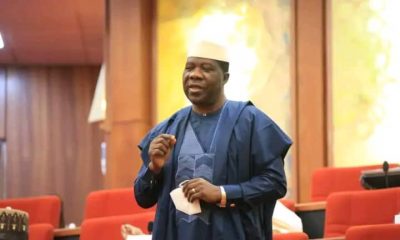

Economic Sabotage: Senate Invites NNPC, CBN, NIMASA, Dangote, Others for Questioning
Share*Investigates Billions Spent On Maintenance Of Nation’s Refineries *Beams Searchlight On NMDPRA Over Payment To Transporters *Reveals Plan To Visit...
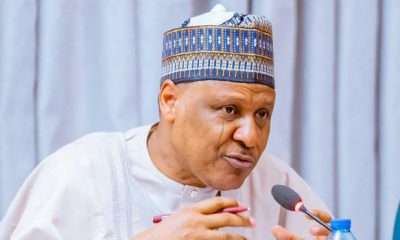

Hunger Protest: Information Minister Pleads For Time, Says FG Engaging Stakeholders
ShareAhead of the planned nationwide protest in August, the Minister for Information and National Orientation, Mohammed Idris, has appealed to...
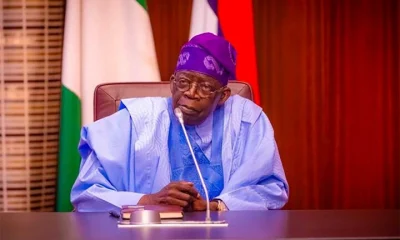

Tinubu Signs Bill Creating North-West, South-East Development Commissions.
SharePresident Bola Tinubu has assented to the North-West Development Commission (Establishment) Bill, 2024, and the South-East Development Commission (Establishment) Bill,...


Tinubu Orders Payment Of SSANU, NASU’s Withheld Salaries
Share President Bola Tinubu has directed the Ministers of Finance, Wale Edun, and Education, Prof Tahir Mamman to explore ways...
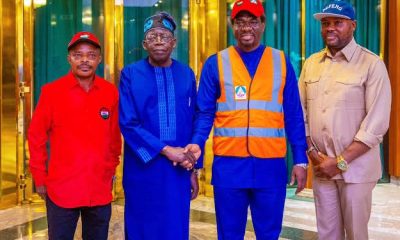

Minimum wage: Manufacturers Present Demands To Aid Compliance
ShareThe Manufacturers Association of Nigeria (MAN) has commended President Bola Tinubu for achieving the breakthrough on the long-awaited minimum wage...
